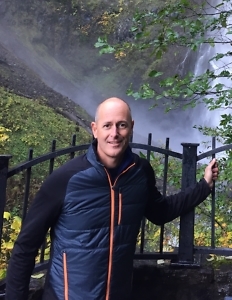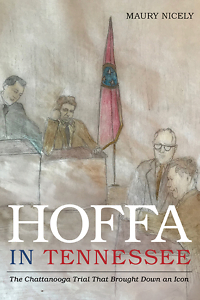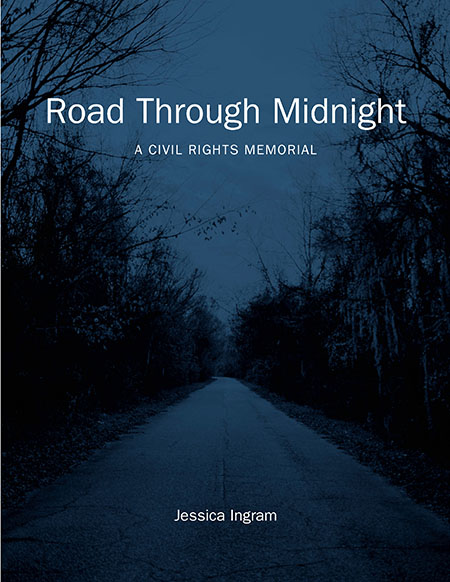Hoffa’s Downfall
Maury Nicely offers a compelling account of Chattanooga’s biggest trial
A national media frenzy, claims of persecution by a political adversary, efforts to discredit witnesses — it sounds like something out of today’s headlines, but this furor played out more than 50 years ago when Teamsters president Jimmy Hoffa went on trial in a Chattanooga courtroom. Historian and attorney Maury Nicely recounts it all in exacting detail in Hoffa in Tennessee: The Chattanooga Trial That Brought Down an Icon.
 While many books and movies focus on Hoffa’s mysterious disappearance in 1975 — Martin Scorsese’s The Irishman being a recent example — Hoffa in Tennessee focuses on the pivotal circumstances leading to his downfall. The trial pitted an army of defense attorneys against Attorney General Robert F. Kennedy’s Justice Department over allegations that Hoffa and his co-defendants had attempted to bribe jurors in a separate court case tried in Nashville in 1962.
While many books and movies focus on Hoffa’s mysterious disappearance in 1975 — Martin Scorsese’s The Irishman being a recent example — Hoffa in Tennessee focuses on the pivotal circumstances leading to his downfall. The trial pitted an army of defense attorneys against Attorney General Robert F. Kennedy’s Justice Department over allegations that Hoffa and his co-defendants had attempted to bribe jurors in a separate court case tried in Nashville in 1962.
The Nashville trial — the fourth such case against Hoffa since the mid-1950s, with charges ranging from wiretapping to bribery — had ended in Hoffa’s acquittal, but no sooner had the ink dried on that verdict than the federal government obtained new indictments against Hoffa on jury tampering charges. Hoffa maintained that Kennedy “had made him the target of one of the largest-ever federal investigations solely because of a personal vendetta and a political desire to punish the Teamsters for supporting Republican candidates,” Nicely writes. Hoffa put it more succinctly in his autobiography, which Nicely quotes: “It was a witch hunt, pure and simple.”
Speaking at the Southern Festival of Books in Nashville in October, Nicely noted that the government had decided to present its case in Nashville in part because John Seigenthaler, editor of The Tennessean, was a close friend of Kennedy’s. The trial would have gotten tremendous coverage had it not been for the fact that it happened to coincide with the Cuban Missile Crisis. “We all thought we were going to die, so we didn’t much care about what would happen to Jimmy Hoffa at that point,” Nicely said.
 But a little more than a year later, the follow-up trial in Chattanooga drew a huge media frenzy. “The media descended from all over the country and that really impacted a lot of what happened. To this day it is the biggest trial to ever occur in Chattanooga,” Nicely said, “and were it not for the Scopes Monkey Trial, it might have been the biggest in Tennessee.”
But a little more than a year later, the follow-up trial in Chattanooga drew a huge media frenzy. “The media descended from all over the country and that really impacted a lot of what happened. To this day it is the biggest trial to ever occur in Chattanooga,” Nicely said, “and were it not for the Scopes Monkey Trial, it might have been the biggest in Tennessee.”
Drawing on court transcripts, interviews, newspaper accounts, and other sources, Hoffa in Tennessee describes the proceedings in comprehensive, blow-by-blow fashion, with federal judge Frank Wilson thrust center stage. “The burden on a trial judge was nowhere more evident than in Chattanooga in 1964,” Nicely writes. One misstep, errant comment, or behavior “that might be deemed prejudicial or erroneous … might lead to calls for a mistrial.”
But Wilson, though untested in a case of this magnitude, proved up to the task. As Nicely notes, “Wilson proved particularly adept at performing his role in a patient, deliberate and courteous manner. … To each objection and demand for a mistrial he simply listened to the attorneys and then, very stoically and without sermonizing, issued his ruling, most often with a simple ‘sustained’ or ‘overruled.’ In this manner, he compelled the trial forward despite a steady torrent of interruptions and objections.”
One of Wilson’s biggest challenges was how much of witness Edward Grady Partin’s testimony would be allowed into evidence. Partin, who was president of a Teamsters local in Baton Rouge, was essentially a traitor in Hoffa’s circle and a key government witness in the jury tampering case. Despite numerous objections and challenges, Wilson allowed most of Partin’s testimony, which ultimately proved to be Hoffa’s undoing. He was convicted and sentenced to eight years.
The Chattanooga conviction marked the effective end of Hoffa’s unchecked rule over the Teamsters, and Hoffa in Tennessee is a compelling account of this largely overshadowed drama. Nicely conveys both the historical and the human aspects of this story about a powerful figure brought low. As the author put it during his talk in Nashville, “The one thing Hoffa wanted was to be president of the Teamsters and he lost it in Chattanooga.”

G. Robert Frazier is a former Middle Tennessee newspaper reporter and editor now working as a book reviewer and aspiring screenwriter. He has served as a script reader for screenwriting competitions at both the Austin Film Festival and the Nashville Film Festival. He lives in La Vergne.


